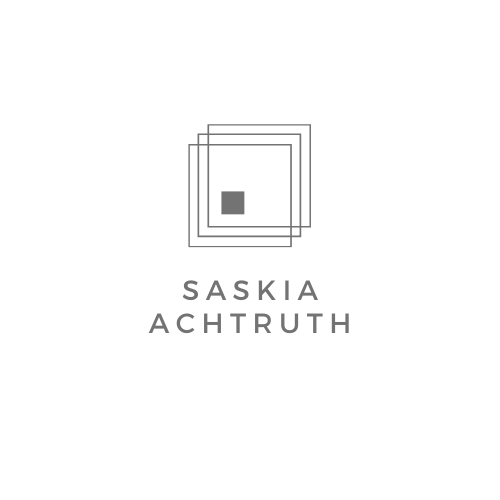To read this article in English, please scroll down. Mein Selbst-Experiment ist beendet. Ich nenne es „Ja zum Schlendrian im Urlaub“ oder, etwas liebevoller, „Die Ideen wachsen lassen“. Rückblickend lassen sich meine Erfahrungen von drei Wochen Schreib-Pause in drei Phasen unterteilen:
Phase 1
Erster Freitag. Totales Unwohlsein. Innerer Dialog: Das geht doch nicht, dass Du Dich jetzt hier auf die faule Haut legst! Was sollen die Leute sagen? Böser Schlendrian! Aus!
Phase 2
Zweiter Freitag. Ich fühle mich ambivalent. Innerer Dialog: Sooooo schlimm ist es ja gar nicht, mal eine kleine Pause einzulegen mit dem Schreiben. Vielleicht sind die Leute sogar ganz froh, mal nicht von Dir zugespamt zu werden. Spinnst Du?! Man kann doch nicht einfach so eine lange Pause machen, schon gar nicht, wenn man die ganze Zeit groß erzählt, wie man seine Ziele am besten und schnellsten erreicht. Ganz sicher nicht durchs faul Abhängen. Peinlich! Najaaaa, es gab schon einige Leute, die gesagt haben, sie finden das gut, dass Du mal Pause machst. Oh, eine Möwe!
Phase 3
Dritter… was? Welcher Tag ist heute? Freitag? Hmmm. War da irgendwas? Ich kann meinen inneren Dialog nicht richtig hören, das Meer rauscht so schön.
Interessanterweise war Phase 2 für mich die härteste. Wahrscheinlich liegt das genau an der Ambivalenz. Absolute innere Unklarheit, mein Nemesis-Gefühl. Mein Lord Voldemort. Mein Endgegner. Ungünstigerweise hat er neun Leben und ich nur eins. Meine Waffe: Klarheit. Sobald ich mich dafür entschieden hatte, die Pause durchzuziehen, hat er sich mit einem leisen „Puff“ in grünen Rauch aufgelöst.
Denkst Du Deine Gedanken oder denken sie Dich?
Wichtig ist in solchen Situationen, dass ich bewusst aus dem Hin und Her aussteige, das mein Verstand mit mir veranstaltet. Denkst Du Deine Gedanken oder denken sie Dich? Diese innere Zerrissenheit ist auf Dauer sehr anstrengend. Das ist doppelt frustrierend, weil wir erstens in einer Art Starre verharren, also uns im wahrsten Sinne des Wortes nicht auf unser Ziel zubewegen können, und zweitens wahnsinnig viel Energie investieren, um uns im Kreis zu drehen, anstatt nach vorne zu marschieren. Du kennst das vielleicht auch als Gefühl des Zweifelns aus anderen Situationen. Der Zweifel ist der auf den ersten Blick hässliche kleine Bruder der Unklarheit, der oft missverstanden wird. Wir wollen keine Zweifel haben. Zweifel sind in unserer Sozialisation irgendwie unsexy. Die sehen schwach aus und unsicher. Stark, eine guter Anführerin, ist in unserer Welt diejenige, die mutig voranschreitet und nicht nach links und rechts blickt. Und schon gar nicht nach hinten.
Dabei sind Zweifel aus meiner Sicht ein ganz wichtiger, gar notwendiger Schritt auf dem Weg hin zur Klarheit. Wie soll ich denn in einer für mich bedeutsamen Situation wissen, dass ich Klarheit habe, wenn ich vorher keine Zweifel hatte? Mir erscheint es viel wahrscheinlicher und auch logischer, dass wir vor jeder für uns bedeutsamen Entscheidung zwangsläufig und zum Glück eine Phase des Zweifelns durchlaufen. Etwas positiver formuliert könnte ich es „Abwägen“ nennen, aber das ist Semantik. Sobald ich dem Zweifeln eine andere Bedeutung gebe, nämlich die, dass es ein anerkennenswerter, essentieller Schritt auf dem Weg zur Klarheit ist, kann ich aus dem „Einerseits-Andererseits-Teufelskreis“ aussteigen. Dafür braucht es, oho, nicht mehr als einen Moment der Selbstreflexion.
Mir erscheint es sowieso wünschenswert, in einer Welt zu leben, in der die Menschen – wenn auch nur ganz kurz – innehalten, bevor sie eine wichtige Entscheidung treffen. Ja, es kann beeindruckend sein und gibt uns wahrscheinlich ein Gefühl von Sicherheit und Orientierung, wenn eine Person in einer Führungsrolle scheinbar frei von Zweifeln den Weg vorgibt und wir wie die Lemminge folgen können. Ich stelle für mich allerdings auch fest, dass ich es sehr befremdlich fände, wenn zum Beispiel Angela Merkel einfach so „aus dem Bauch heraus“ entscheiden würde, wie wir als Nation mit der Pandemie umgehen. Ich bin ziemlich sicher, dass sie Zweifel hatte und weiterhin hat in Bezug darauf, was der beste Weg ist. Und ich bin froh darüber, denn mit Zweifeln geht in der Regel auch Demut einher, die einem Leader gut zu Gesicht steht und einen schlanken Fuß macht.
Für Dich als Leader ist aus meiner Sicht entscheidend (ich konnte nicht widerstehen), dass Du:
- Deine eigene Unklarheit anerkennst und willkommen heißt,
- in der Phase des Zweifelns gegebenenfalls mithilfe einer möglichst diversen Auswahl von Experten die zu der Zeit beste Entscheidung triffst und
- dadurch Klarheit und Orientierung gibst.
Die „Mannschaft“ ist, das ist ja nicht neu, meist schneller an Bord, wenn sie nachvollziehen kann, wie es zu einer Entscheidung gekommen ist. Wenn sie beteiligt werden kann, noch besser – sofern es sich um eine echte „Wir-Entscheidung“ handelt.
Das beinhaltet auch den Blick zurück, den nach links und den nach rechts, um kontinuierlich zu analysieren und zu überprüfen, ob die aktuelle Vorgehensweise noch zum aktuellen Kontext passt. Das ist übrigens das, was ich unter Agilität verstehe. Für Politiker eine zugegebenermaßen schwierige Aufgabe, da die Politik aus ihrem Selbstverständnis heraus leider wenig Raum für Agilität zu lassen scheint. Da haben Führungspersonen in Unternehmen es deutlich einfacher und können sich gern öfter agil zeigen. Zweifel offenzulegen macht übrigens auch sympathisch. Wichtig ist, was danach kommt. Grundsätzlich sind Entscheidungen, genau wie Planungen, nicht in Stein gemeißelt. Und damit dann nicht der Eindruck von Willkür und Unbeständigkeit entsteht, braucht es wieder ganz viel Klarheit und Transparenz, besonders in der Kommunikation.
Ich ziehe das folgende Fazit aus meinem Selbstversuch: Die Zweifel, die ich in Phase 2 gespürt habe, waren wertvoll und notwendig, um mich in die tiefenentspannte Phase 3 zu bringen. Und das war dann gleichzeitig die Phase, in der ich tatsächlich eine neue (hoffentlich gute) Idee nach der nächsten hatte. Was für ein Glück also, dass ich Zweifel hatte. Nimm das, Endgegner!
Ich freue mich sehr auf Deine Gedanken zum Thema Zweifeln.
Bis nächsten Freitag! Bleib klar.
Deine Saskia
You have doubts? Congrats!
My self-experiment is over. I call it “Yes to strolling on vacation” or, more lovingly, “Let the ideas grow”. In retrospect, my experience of taking a three-week-break from writing can be divided into three phases:
Phase 1
First friday. Total discomfort. Inner dialogue: What are you doing? You can’t seriously think that it’s okay to not write anything! What are people going to say? Bad Schlendrian! Sit!
Phase 2
Second Friday. I feel ambivalent. Inner dialogue: It’s not that bad to take a little break from writing. Maybe people are even very happy not to be spammed by you. Are you crazy?! You can’t just take such a long break, especially not if you keep telling people how to best and quickly achieve your goals. Certainly not by „hanging out“. You should be ashamed of yourself! Well, there have been some people who have said they think it’s good that you take a break. Oh, look, a seagull!
Phase 3
Third … what? What day is it today? Friday? Hmmm. Anything I was supposed to be doing…? I can’t really hear my inner dialogue, the ocean sounds are so beautiful.
Interestingly, phase 2 was the toughest for me. This is probably precisely due to the ambivalence. Absolute inner confusion, my nemesis feeling. My lord voldemort. My final boss. Unfortunately, he has nine lives and I only one. My weapon: clarity. As soon as I decided to take the break, he dissolved into green smoke with a quiet „pouf“.
Do you think your thoughts or do they think you?
In such situations it is important that I consciously get out of the back and forth that my mind is doing with me. Do you think your thoughts or do they think you? This inner conflict is very exhausting in the long run. This is doubly frustrating because, firstly, we remain in a kind of rigidity, that is, we literally cannot move towards our goal, and secondly, we invest an incredible amount of energy to go round in circles instead of marching forward. You may also know this as a feeling of doubt from other situations. Doubt is the at first sight ugly little brother of ambiguity, which is often misunderstood. We don’t want to have any doubts. Doubts are kind of unsexy in our socialization. They look weak and insecure. In our world, a strong, „good“ leader is one who marches on and does not look left or right. And certainly not back.
From my point of view, doubts are a very important, even necessary step on the way to clarity. How am I supposed to know that I have clarity in a situation that is significant for me, if I had no doubts beforehand? It seems to me much more likely and also more logical that we inevitably and fortunately go through a phase of doubt before every decision that is meaningful to us. To put it a bit more positively, I could call it “weighing up”, but that’s semantics. As soon as I give the doubt another meaning, namely that it is a commendable, essential step on the way to clarity, I can get out of the „on the one hand-on the other hand-vicious circle“. It doesn’t take more than a moment of self-reflection, ha!
It seems desirable to me to live in a world in which people pause – even if only briefly – before making an important decision. Yes, it can be impressive and probably gives us a sense of security and orientation when a person in a leadership role leads the way seemingly free from doubt and we can follow like the lemmings. However, I would find it very strange if, for example, Angela Merkel were to simply decide based on her „gut feeling“ how we as a nation should deal with the pandemic. I’m pretty sure she had and continues to have doubts as to what is the best way to go. And I am happy about it, because doubts are usually accompanied by humility, which generally suits any leader well.
If you yourself are a leader, I think it is crucial that you:
- Acknowledge and welcome your own ambiguity,
- in the phase of doubt, possibly with the help of as diverse a selection of experts as possible, make the best decision at the time and
- thereby giving clarity and orientation.
The “team” is, and that’s nothing new to you, usually on board faster if they can understand how a decision was made. If people can be involved, even better – provided it is a real „we decision“.
This also includes looking back, to the left and to the right, in order to continuously analyze and check whether the current approach still fits the current context. By the way, that’s what I mean by agility. This is admittedly a difficult task for politicians, as politics unfortunately seems to leave little room for agility. The good news is: It is so much easier for leaders in companies, so feel free! By the way, revealing doubts also makes people approachable. What is important is what you do next. Basically, like planning, decisions are not set in stone. And so that the impression of arbitrariness and inconsistency does not arise, a lot of clarity and transparency are needed, especially in communication.
I draw the following conclusion from my self-experiment: The doubts I felt in phase 2 were valuable and necessary to bring me into the deeply relaxed phase 3. And that was also the phase in which I actually had one new (hopefully good) idea after the next. So thank goodness for my doubts. Take that, final boss! Pouf.
I am really looking forward to your thoughts on the subject of doubt.
Till next Friday! Stay clear.
Yours, Saskia



